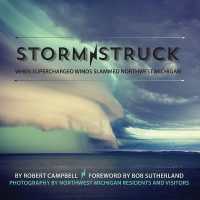Full Description
In this book you will read many examples of rich literacy conversations between a teacher and his 8th grade students that never would have occurred face to face in the classroom. These conversations take place online when 8th graders write to their teacher about the books they're interested in reading and choosing to read independently. Students write about what happens when they read or don't read, how they feel about reading, how they're connecting with characters and ideas, why they don't have enough time to read, and what their reading goals are. And their teacher writes back to them. Every week. After each conversation you will read some "meta-talk" that shines a light on what the conversation has taught us about this language learner and how this "data"is informing our beliefs and practices. Embedded within the chapters are suggested resources (articles, book recommendations, links, websites, blogs, etc.) you can follow should you want to read more in that chapter. What these students reveal about their own literacy development- their successes, their challenges, their lives- and how their teacher nudges them along socially, emotionally and academically, teach us the value and power of one practical, authentic literacy tool- the Reading Conversation Journal.
Contents
Foreword by Sharon Kane
Preface- How We Got Started or The Birthing of the RCJ
Acknowledgements
Introduction
Part One: What Online Reading Conversation Journals Are and What They Can Do for Readers, Writers, and Teachers (20 pages)
Chapter 1- The Benefits of Digital Journaling
Chapter 2- Using a Workshop Model for Reading and Writing
Chapter 3- (The Importance of) Our Core Beliefs
Chapter 4- Meet Amelia
Final Thoughts
Part Two: Motivation, Confidence, and Trust: How Online Reading Conversation Journals Enhance the Teacher-Student Relationship
Chapter 5- Meet Kaylee
Chapter 6- Nurturing the Relationship
Chapter 7- Playing with Language
Chapter 8- On Reading Summaries and Retellings
Chapter 9- Questions that Move Readers Forward
Final Thoughts
Part Three: How Online Reading Conversation Journals Promote "Universe as Text"
Chapter 10- Expanding our Definition of Text
Chapter 11- Tapping into Students' Interests
Chapter 12- Mining Student Data: Meet Jamal, Maddie, and Natalie
Chapter 13- The Universe of Digital Media: Youtube, TV, Movies
Chapter 14- The Video Game Universe: Meet Ricky and Sebastian
Chapter 15- The Universe of Poetry and Song: Meet Owen
Chapter 16- The Universe of Art: Meet Jacinta
Final Thoughts
Part Four: How Online Reading Conversation Journals Grow Reading Engagement and Self-Awareness
Chapter 17- The Importance of Reading Engagement: Meet Lydia
Chapter 18- Mindful Teaching, Mindful Reading
Chapter 19- Teaching the Whole Reader
Chapter 20- Weekly Check and Connect
Chapter 21- The RCJ: A Critical Look
Chapter 22- Conversations as Ongoing Assessment: Continuous Monitoring and Adjusting
Final Thoughts
Part Five: A Dozen Questions Teachers Ask about Using the RCJ as an Integral Part of their Comprehensive Reading and Writing Program
Overview
Question 1:Should the reading conversation journals be graded? If so, how? What does your record-keeping look like?
Question 2: What instruction does the teacher offer before students write in their journals on Fridays?
Question 3: Are students assigned independent reading for homework?
Question 4: How long does it take to read and respond each week?
Question 5: How can teachers develop a more diverse classroom library?
Question 6: What if I don't have enough computers in my classroom?
Question 7: How does this method work for our struggling readers and writers?
Question 8: How do online reading conversation journals align with ELA standards and expectations in our field?
Next Generation ELA Standards
Newly Revised NCTE Position Statement on Independent Reading (2019)
Joint statement on leisure reading
Lifelong Practices of Readers
Lifelong Practices of Writers
Question 9: How is the online reading conversation journal evidence-based?
Question 10: What are the outcomes of your three-year practice?
Question 11: How do your teaching philosophies shape your literacy practices?
Question 12: Why isn't this scenario happening in most middle school classrooms?
Final Thoughts
References
About the Authors








